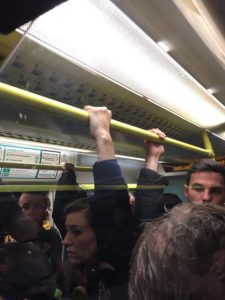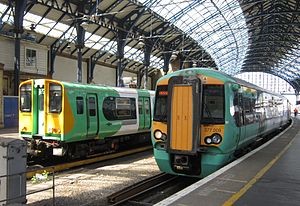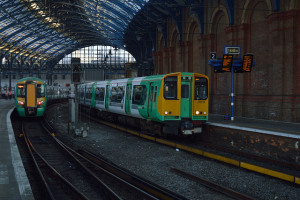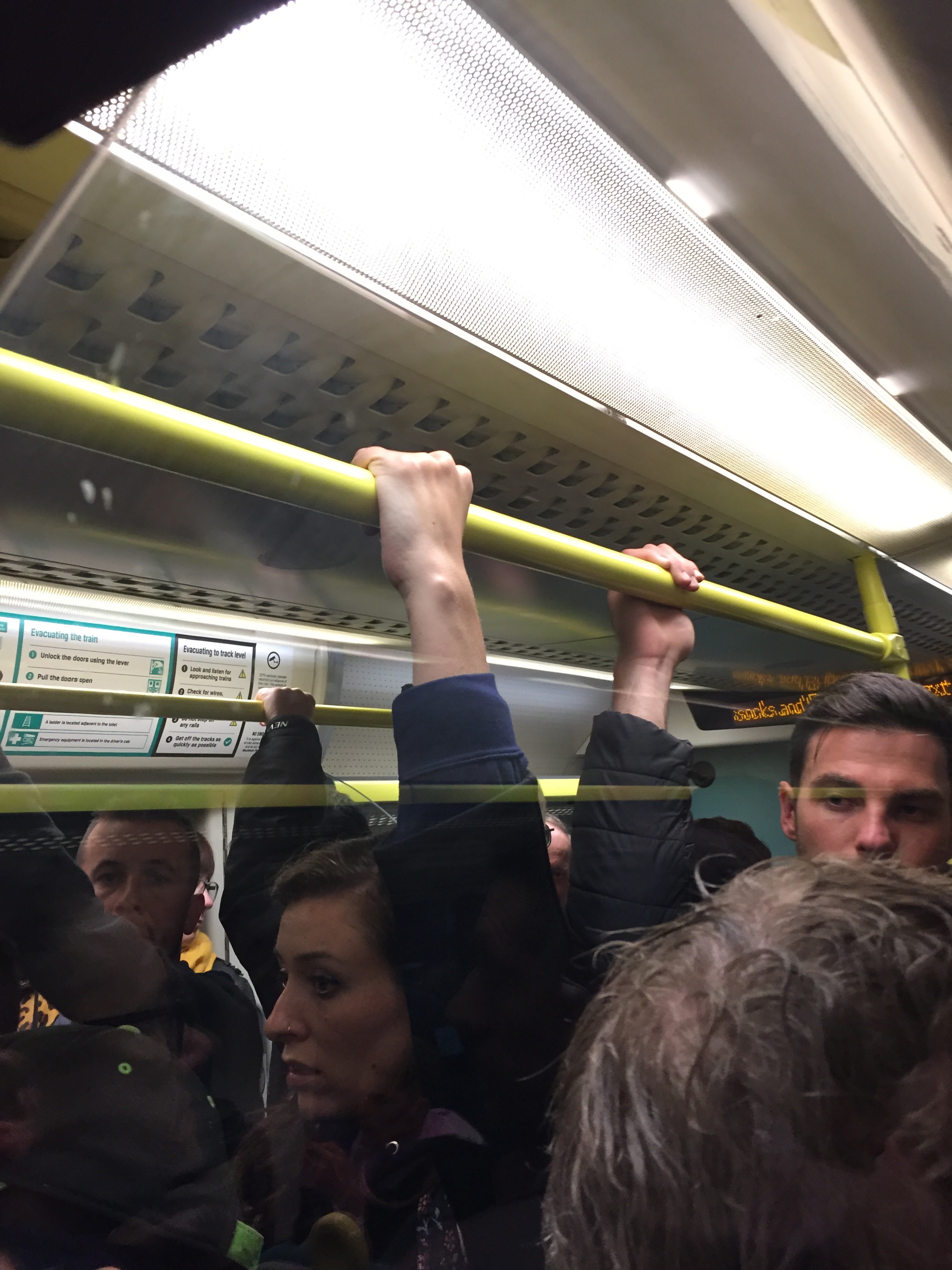A select committee of MPs has criticised the train company serving Brighton and Hove as well as the RMT union and the government.
It urged them to resolve the current disputes about the driver-only operation (DOO) of trains and the proposed closure of station ticket offices.
The cross-party House of Commons Transport Committee questioned the union’s claims that the new trains would be unsafe without a guard.
But tomorrow (Tuesday 18 October) another three-day strike will start, with three more strikes planned before Christmas.
While MPs accepted that driver-only trains were safe, they called for research into the effect of changes proposed by Govia Thameslink Railway (GTR) on disabled passengers.
And the National Pensioners Convention said that the train operator could break equalities laws if people with physical disabilities or the blind, for example, were unable to travel.
MPs said that the franchise was too big and complex and that GTR, which runs Southern and Thameslink, had too few staff to run the railway when it took over. They also called for smarter ticketing and better wifi. The handling of the work at London Bridge was also criticised.

The report said: “GTR, the RMT and the government are each to some extent culpable in the current damaging industrial dispute that, in the main, adversely affects passengers.
“The impact has been catastrophic for passengers and local communities covered by GTR services.
“We urge GTR, the RMT and the government to take on board the criticisms and recommendations made in this report and each party to consider further compromises to bring this matter to a rapid resolution.
“It would be unacceptable for any party to instead use sections of this Report to emphasise the shortcomings of another.
“We are concerned that no official impact assessment has been made of the potential effects of DOO on disabled people’s access to the railway.
“We recommend the DfT and the Association of Train Operating Companies (ATOC) jointly commission research into the potential effects of DOO on the ‘turn up and go’ accessibility of the railway to disabled people who require assistance getting on and off trains.
“The department should … ensure that actions are taken to guarantee that disabled rail passengers receive the support to which they are entitled.
“The research should be conducted, and guidance published, before summer 2017.”

The report’s summary said: “The level of service for many passengers on the TSGN (Thameslink Southern Great Northern) franchise, particularly the troubled Southern Railway brand, has been woeful for more than a year.
“The initial structuring of the franchise, inadequate planning, weaknesses in the franchise handover process, infrastructure and rolling stock failures, mismanagement, poor industrial relations and the current bitter and prolonged industrial dispute have all contributed to an unacceptable level of service for TSGN’s long-suffering passengers.
“The Department for Transport (DfT) should consider how these passengers can be appropriately compensated, as a matter of urgency.
“The DfT must ‘get a grip’ on the monitoring and enforcement of Govia Thameslink Railway’s (GTR) franchise agreement to deliver services on the TSGN network.
“It must expedite its assessments of GTR’s ‘force majeure’ claims and be prepared to restructure or terminate the agreement should GTR be shown to be in default.
“It is unacceptable that the process should be delayed by GTR’s tardiness in supplying the information necessary to support its force majeure claims.
“There is no valid reason why the necessary assessments should not be made by early November 2016.

“It is simply not credible for the DfT to continue to claim that no other operator could do a better job. If it is the case, it is a consequence of the structuring of the franchise, for which the department is ultimately accountable.
“In the interests of transparency and scrutiny, the DfT must ensure that data on GTR’s performance against its contractual obligations are made publicly available – our lack of access to these data during the inquiry was totally unacceptable. It hindered our work and delayed publication of this report.
“The DfT has wider lessons to learn about the structuring, monitoring and enforcement of franchise agreements and the planning and management of major rail infrastructure projects. The TSGN debacle must never be repeated.
“The passenger railway appears, according to official measures, to be performing relatively well for passengers.
“But headline measures of passenger satisfaction and train operating company (TOC) performance do not accurately reflect the real experience of many passengers, particularly commuters on overcrowded parts of the network.
“The measures should be reformed, to reflect these real experiences more accurately, and to help restore trust in the industry.

“Parts of the rail ticketing system are overly complex, opaque and unfair – a situation that has persisted for a least a decade.
“Progress towards a network-wide ‘smart ticketing’ solution and the introduction of part-time season tickets has also been far too slow.
“In the short to medium term the DfT and the Office of Rail and Road must use their respective franchising and regulatory powers more rigorously and work together to resolve ticketing issues.
“While it is important to ensure that support and advice for passengers is available from railway staff during journeys, the most important, and potentially transformative, factor in improving information for all passengers and railway staff will be expanding wifi coverage across the rail network.
“The benefits of reliable wifi on the railway are manifold: more enjoyable journeys for leisure passengers, more productive journeys for business passengers and the potential for reliable information, in real-time, to the benefit of all rail users and railway workers.
“The sector urgently needs a clear plan for investment in wifi technology on the railway.”








